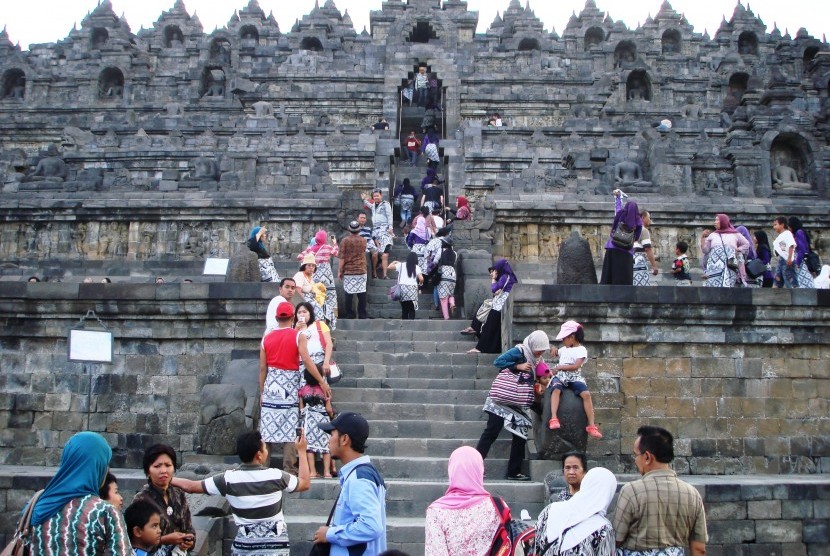REPUBLIKA.CO.ID, MAGELANG-- Nezar Kayed Najlaa leaned against one of the pillars in Borobudur Conservation Office on Friday (March 17). He took his cellular phone from his grey pocket and played some videos of his activities in Indonesia.
In a video he was looked so enthusiastic in playing percussions with a group of street artist in Yogyakarta. The humanist from Nablus, Palestine, was also amazed and curious with the dance performance he watched yesterday. "I don’t know what kind of dance they played. It is beautiful and I am interested in Indonesian cultural,” said Nezar showed the videos to Republika.co.id.
Meanwhile, laughter was burst in dining room of workshop and training on conservation, monument restoration, world cultural heritage management, and tourism held by the directorate of technical cooperation of foreign minister cooperated with the directorate general of culture in educational and cultural ministry.
Also read: Palestine learn religious tourism from Indonesia
It happened when Walid Abu Jouda Yousra sang an Arabian song accompanied subaba music played from his cellular phoneSubaba was a Palestinian music instrument resemble to Indonesian flute. It was commonly played in special events or festivities. The sound of his voice and the subaba entertained the participants. “Subaba is commonly played in wedding parties, commemorations of Holy day, and welcomes to Ramadhan,” said Walid who made the lunch livelier.
While some participants enjoyed their lunch, an archaeologist from Hebron, Muhammad Abed Sulaeman Aliaradat talked to a representative of museum of Asia-Africa conference. The participants seemed cannot wait to visit the historical sites in Indonesia. They often talked about it and looked for preliminary information.
There were eleven Palestinians joined the program since March 13. They were archaeologists and humanists representing some big cities in Palestine. They were scheduled to stay in Indonesia for 13 days to share their knowledge and experiences in culture, cultural heritage conservation, tourism, and especially preservation of the cultural heritage. “We are happy to cooperate with Indonesia. We learn how to preserve the cultural heritage and how to develop tourism. We say thank you for the welcome of Indonesian societies and for this important workshop,” said Nezar.


